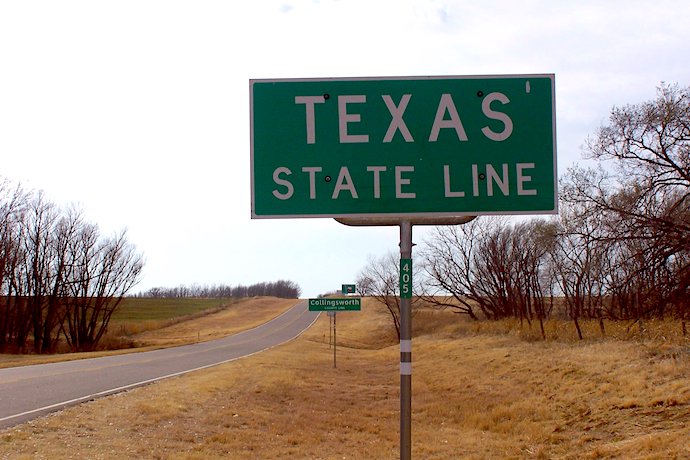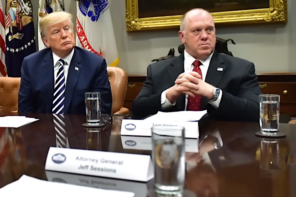The Texas Legislature is set to enact three laws to redefine the rules concerning religion in public schools. One will allow students and teachers to engage in Bible reading during the school day; a second will require the posting of the 10 Commandments in public school classrooms; the third will authorize “chaplains” in public schools.
All three proposals are highly unconstitutional under current law. In 1963, the Supreme Court ruled that school-sponsored prayer and Bible reading were unconstitutional as they gave the state’s imprimatur to a particular religious practice while coercing impressionable school children. That decision did not stop my Fort Worth high school from conducting daily Protestant prayer and Bible reading in the 1970s, despite the fact that the school was predominantly Catholic. When my turn came to do the daily Bible reading over the public address system, I whipped out a copy of the Bhagavad Gita—and I ended up in detention.
The Supreme Court has also ruled that both the posting of the 10 Commandments in public schools and outsiders conducting religious instruction during the school day are unconstitutional. Under normal circumstances, these various laws would be “dead on arrival” in any federal court challenge.
But we no longer exist under normal circumstances when it comes to constitutional rights. After the Dobbs v. Jackson Women’s Health decision, reversing a 50-year-old precedent protecting reproductive rights, once-secure constitutional rights are now in doubt and are fair game for conservative activists. The same week as the Dobbs decision, the Supreme Court ruled in Kennedy v. Bremerton School District that a high school football coach could pray on the field in front of the audience at the conclusion of a game.
According to the Court majority, the issue wasn’t whether the coach was using his position of authority to influence players and spectators to engage in religious activity at a school event. Rather, it was whether the coach had a free speech right to exercise his religion during a “private” moment. But if a playing field is a coach’s classroom, how far does that ruling go? Can classroom teachers engage in demonstratively religious activities in front of students provided they’re not actively teaching at the moment? The Kennedy holding provides an open invitation to the Texas legislature to set up a challenge to once-settled law.
These legislative efforts cannot be viewed in isolation. Since 2010, the Texas State Board of Education, a partisan-elected agency that oversees the state’s education standards and curriculum, has enacted several changes to the content of the public schools’ science, history, and health education course-materials. All of these changes—from emphasizing the nation’s Christian founding in social studies to deemphasizing evolution and climate change in science classes—reflect, as David Brockman put it here on RD, a “Christian Americanist” worldview. And students are left in the dark when it comes to comprehensive sex education and support for LGBTQ+ concerns. The proposed legislation will thus complement, and state more clearly, the message that state officials wish to communicate to Texas schoolchildren, which is that Texas is a state for White, heteronormative, conservative Christians.
Texas, however, is much more religiously diverse than this message would suggest—and far more diverse than it was when I grew up there in the 1970s. According to the Pew Research Center, only 31% of adult Texans are evangelical Protestant, the constituency that would most likely support this legislation. Catholics constitute 23% of adults, with mainline and Black Protestants accounting for another 19%. Non-Christian affiliation is still relatively small, with Jews, Muslims, Hindus, and Buddhists each accounting for approximately 1%. But the number of unaffiliated Texans—aka “nones”—come in at 18%.
Although these figures may suggest that Texas is still a “Christian State,” employers, particularly in high-tech and research centers surrounding Houston and Austin, need to attract workers who often come from diverse backgrounds. Religious provincialism can be off-putting to prospective employees.
The Texas Legislature is regressing. Do we care about the effect of these potential practices on non-Christian, areligious, and unaffiliated students? How do we determine which version of the 10 Commandments we will post? The Jewish version, the Catholic version, the Lutheran version, or the evangelical Protestant version—all of which are distinct? And who will get to choose the school “chaplain”? And will the same opportunities be afforded to minority religions (or, say, Wiccas)?
Students have multiple opportunities to express their religiosity during the school day, whether it’s being able to pray over lunch (permissible) or to participate in religious clubs during club periods (also permissible). These bills aren’t about enhancing religious freedom or opportunity, they’re about advancing a conservative religious agenda that perpetuates a false narrative of grievance.





